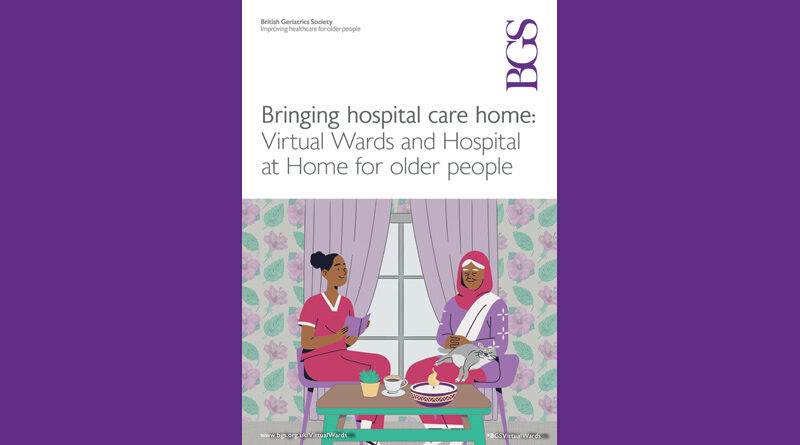BGS Launches “Bringing Hospital Care Home” Report
The British Geriatrics Society has launched ‘Bringing hospital care home: Virtual Wards and Hospital at Home for older people.’ This new report explores the potential benefits, limitations, and current scientific evidence to be considered when providing a safe, effective, and person-centred alternative to hospital inpatient care for older adults. This publication highlights how ‘Virtual Wards’ are being funded and implemented. It explains the various definitions of the term ‘Virtual Wards’ as used in different parts of the UK and describes the face-to-face care delivered by a multidisciplinary team, combined with some remote monitoring.
Alongside the benefits of treatment, hospital stays can expose older people to risks such as deconditioning, delirium, and hospital-acquired infections. For some people, receiving hospital-level treatments and rehabilitation at home has the potential to reduce the likelihood of these associated conditions without negatively affecting patient safety or access to specialist healthcare professionals. Virtual Wards aim to provide urgent access to relevant blood tests, ultrasounds and hospital-level diagnostics.
This report summarises the current landscape on Virtual Wards and provides advice for decision-makers looking to set up such services for older people living with frailty. Recent scientific research has provided some evidence that hospital-level care in an individual’s home environment may improve their care experience and outcomes and deliver benefits for patients, carers and health and care systems.
The evidence base highlighting the potential benefits of Virtual Wards is growing but caution is needed when considering widespread implementation.
The report recognises that this type of care will not be suitable for all patients and not all older people with acute conditions will want, or be able, to be cared for in such a service. For some patients, hospital will remain the safest place for them to be. However, feedback from older people using existing virtual ward services shows that many people welcome the option of receiving hospital-level care in the comfort of their own home, supported by family care and visiting professionals. Honest communication with patients and families about how the service works and what to do if the patient’s condition deteriorates is vital to operating a successful service.
Dr Jennifer Burns, President of the British Geriatrics Society, commented:
In my work as a hospital-based geriatrician, I regularly see older patients who would potentially benefit from access to hospital-level care in their home environment. I welcome the initiatives to develop ‘Hospital at Home’ and ‘Virtual Ward’ models across the UK. It will be important to evaluate these, in the hope of strengthening the current evidence base. Virtual Wards for older people who need acute-level care will be a useful addition to the range of services available in community settings and, over time, will help to alleviate some of the pressure on hospitals.”
Read the full report here.





